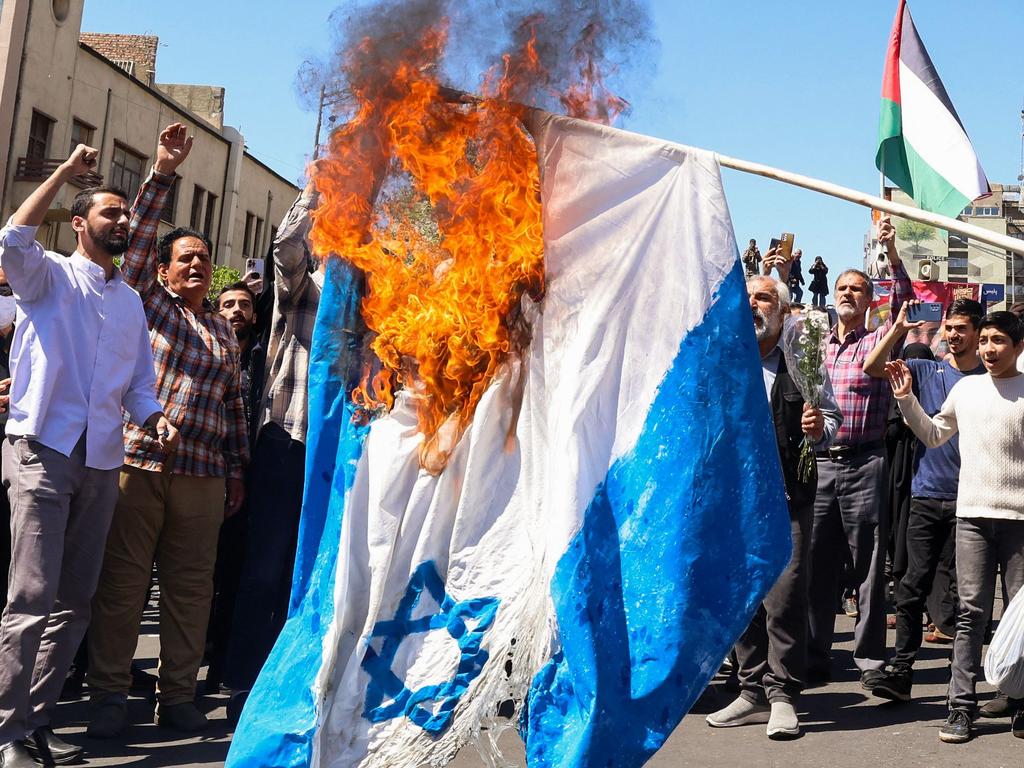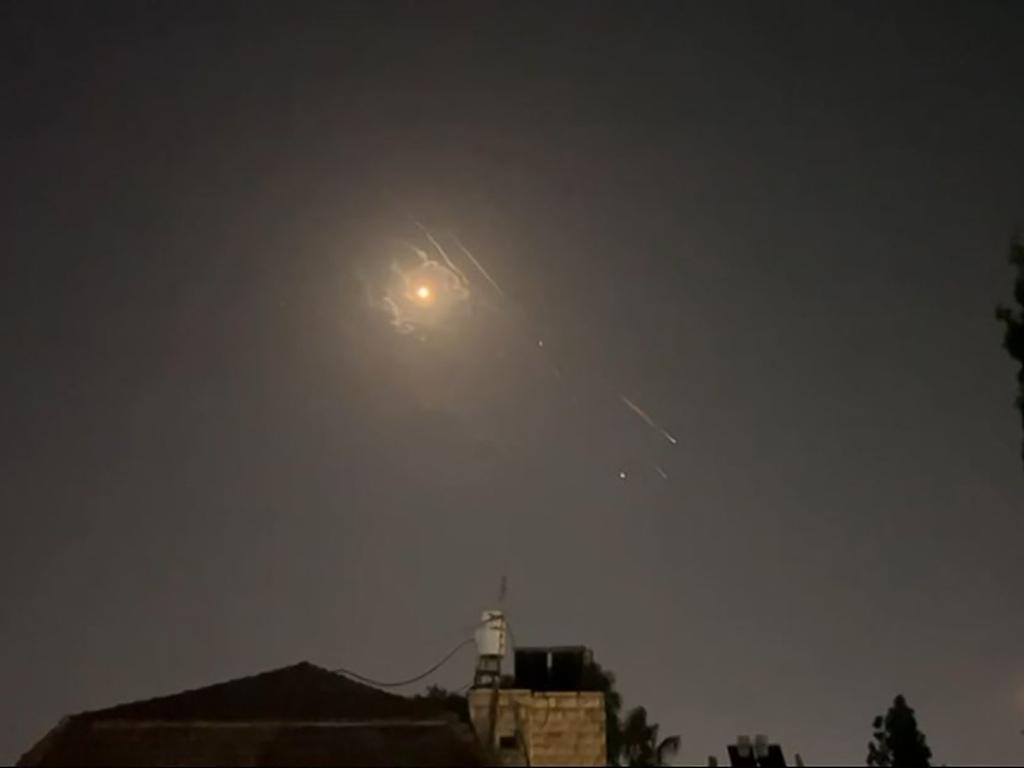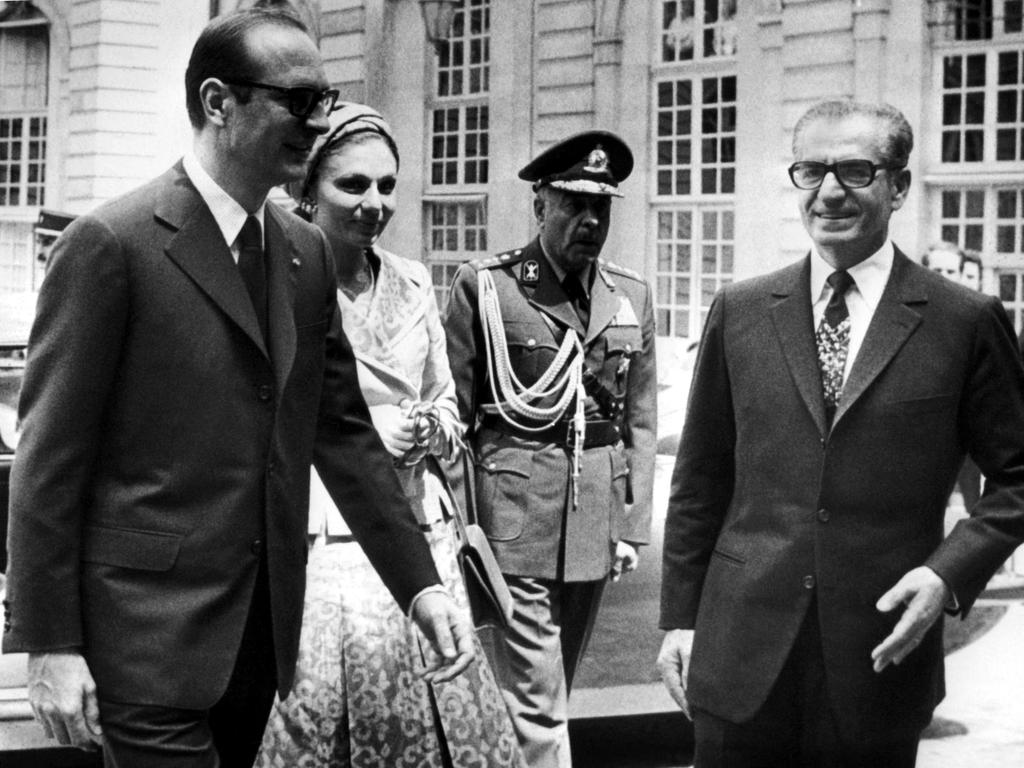Edge of all-out war: Iran attack on Israel crosses Rubicon
The Islamic regime’s first direct military strike on the Jewish state has prompted fears of a major retaliatory attack on Iranian soil.
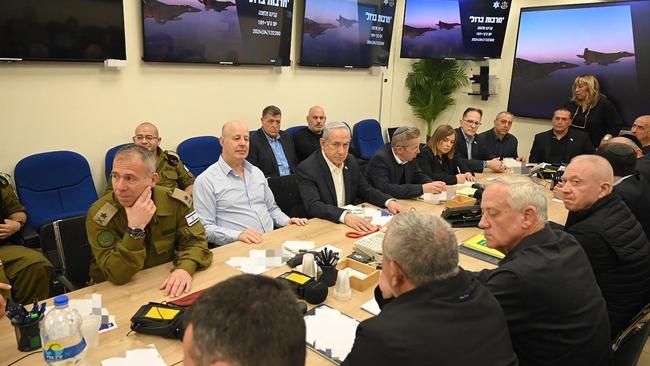
The Middle East is on the brink of all-out war between Iran and Israel after the Islamic regime launched its first-ever direct military strike on Israel, prompting fears Israel would launch a major retaliatory attack on Iranian soil.
In a massive escalation of tensions across the region, Iran launched more than 300 drones and missiles against Israel in an assault that was thwarted by Israeli and US forces, which shot down an estimated 99 per cent of the incoming attacks.
The attack forced many Israelis to seek protection in shelters where they listened to explosions as the Iron Dome missile defence system destroyed numerous incoming missiles and drones.
Joe Biden condemned the Iranian attacks in “the strongest possible terms”, but has told Israel it will not join any offensive operations against Tehran, amid speculation that Israel will now launch a direct military strike in Iran.
A full-scale war between Iran and Israel would cause turmoil across the Middle East at a time when Israel is also at war against Hamas in Gaza and is fending off daily attacks on its northern border from Iran’s terrorist ally, Hezbollah, in Lebanon.
Anthony Albanese condemned Iran over its “reckless” attacks on Israel, calling the action a “grave threat to the security of Israel and the entire region”.
“It risks greater instability and devastation across the Middle East,” the Prime Minister said. “Anyone who cares for the protection of innocent life must stand against these attacks.”
Mr Albanese said Iran’s “ongoing flouting of international law, its egregious human rights abuses and threat to international security” are why the government had imposed targeted financial sanctions and travel bans, including Magnitsky-style sanctions, on 85 individuals and 97 entities.
In its first-ever direct military attack on Israel, Iran launched 185 drones, 36 cruise missiles and 100 surface-to-surface missiles, mostly fired from within Iran.
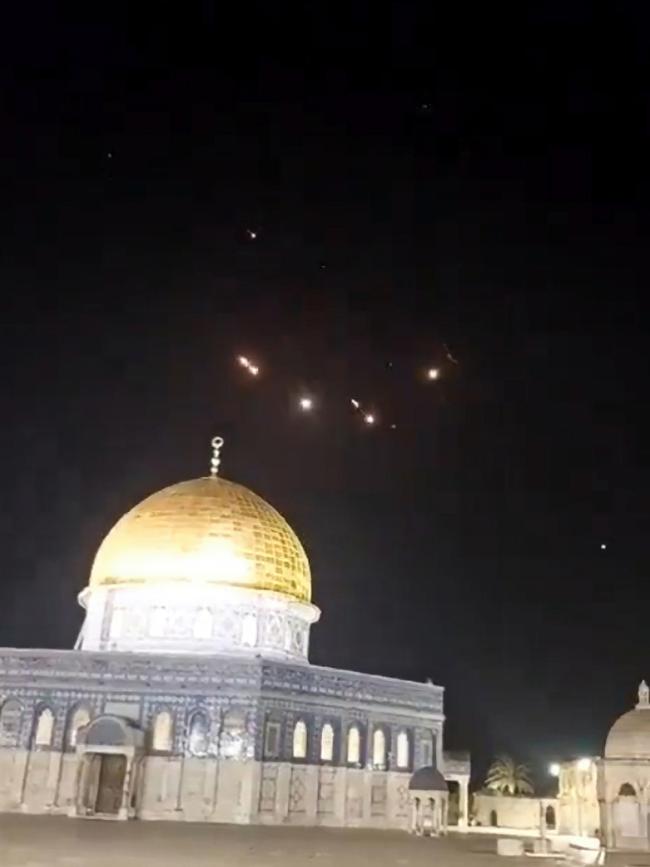
Iranian state media said the attack, dubbed Operation True Promise, was in retaliation for the Israeli strike on an Iranian diplomatic compound this month in Syria that killed seven members of Iran’s Islamic Revolutionary Guard Corps, including two senior commanders.
Iran’s supreme leader, Ayatollah Ali Khamenei, said: “Attacking our consulate is like attacking our soil. The malicious regime has made a wrong move in this case. It should be punished and it will be punished.”
Iran’s Foreign Ministry claimed the attack on Israel was a “defensive measure” that showed the country’s “responsible approach toward regional and international peace and security”.
Israel’s air defences, assisted by US military forces based in the region, meant nearly 99 per cent of the aerial threats launched at Israel were intercepted, IDF Rear Admiral Daniel Hagari said.
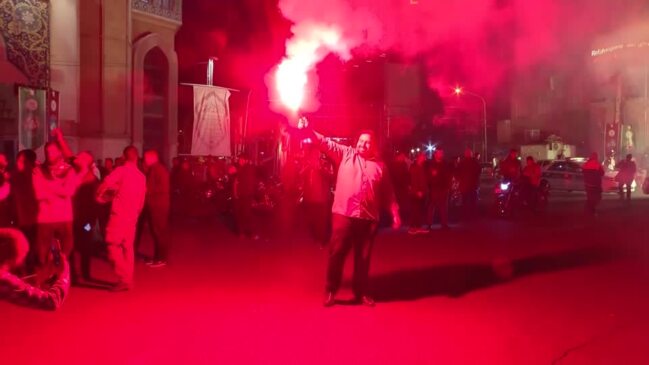
The Iranian strikes caused only slight damage to the Nevatim air force base in the Negev desert in southern Israel, while 12 people in the region were taken to medical centres, including a seriously injured seven-year-old girl.
“Iran thought it would paralyse the base,” Rear Admiral Hagari said. “It failed.”
But he described Iran’s actions as a “major escalation” of tensions across the region.
“We intercepted. We blocked. Together we will win,” Israeli Prime Minister Benjamin Netanyahu said.
President Biden condemned the “unprecedented” air attacks by Iran and convened a G-7 leaders meeting to co-ordinate a united response.
He said that thanks to the recent deployment of US aircraft and warships to the region “we helped Israel take down nearly all of the incoming drones and missiles”.
“Israel demonstrated a remarkable capacity to defend against and defeat even unprecedented attacks – sending a clear message to its foes that they cannot effectively threaten the security of Israel,” Mr Biden said.
The President has said the US will offer “ironclad” support for Israel’s security, while Defence Secretary Lloyd Austin called on Iran not to launch any further attacks.
“We do not seek conflict with Iran, but we will not hesitate to act to protect our forces and support the defence of Israel,” he said.
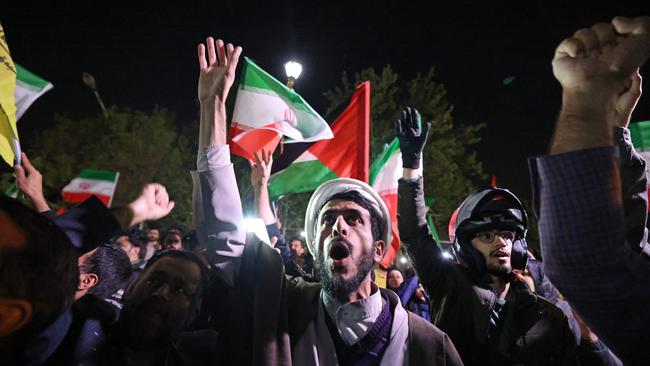
The UN Security Council scheduled an emergency meeting to discuss Iran’s attack on Israel.
Iran’s Islamic Revolutionary Guards Corps said it had launched “dozens of drones and missiles” toward Israel “in reaction to the Zionist regime’s crimes” and threatened more strikes if Iran or its interests were hit in any retaliatory attack.
Crowds gathered in Tehran to celebrate the attack on Israel despite many not being aware the attacks had failed to cause major damage to targets or loss of life.
Iran’s attack sent tensions soaring on Israel’s northern border where pro-Iran Hezbollah and Israeli forces have exchanged almost daily attacks since the Hamas attack on Israel on October 7.
Hezbollah sent two explosive drones into Israeli territory triggering an attack by Israeli fighter jets on targets belonging to Hezbollah’s elite Radwan forces in southern Lebanon as well as several other targets of the terrorist group.


